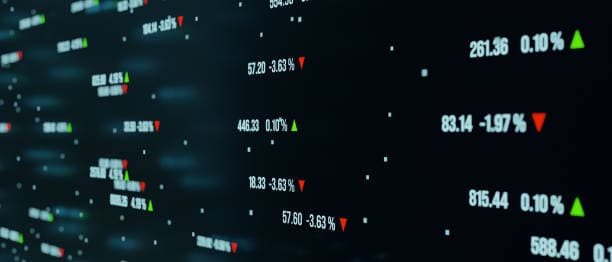The digital revolution has transformed the way we trade, and market trading has become an integral part of our global economy. The evolution of electronic trading in digital markets has been nothing short of remarkable, with technology reshaping the landscape and making it more accessible to a wider audience. Let’s dive into the fascinating world of market trading and explore how it has evolved over the years.
Market trading has come a long way from the days of open outcry and chalkboards. Today, traders can access a plethora of information and tools at their fingertips, thanks to advancements in technology. The rise of electronic trading platforms has democratized access to financial markets, allowing individuals and institutions alike to participate in market trading with ease.
The Birth of Electronic Trading
The journey of electronic trading began in the 1970s with the introduction of the first electronic trading systems. These early systems were rudimentary compared to what we have today, but they laid the foundation for the digital transformation of market trading. The 1980s saw the emergence of electronic communication networks (ECNs), which further streamlined the trading process by allowing traders to connect directly and execute trades electronically.
The 1990s brought about the internet, which revolutionized market trading by providing a platform for the masses to access financial markets. Online brokerages emerged, offering users the ability to trade stocks, bonds, and other financial instruments from the comfort of their homes. This marked a significant shift in the market landscape, as market trading became more democratized and less centralized.
The Rise of Algorithmic Trading
As technology continued to advance, so did the sophistication of trading strategies. Algorithmic trading, or algo trading, emerged as a new frontier in market trading. This method involves using complex algorithms to execute trades based on predefined parameters, allowing for faster and more efficient trading. Algo trading has become increasingly popular among institutional investors and hedge funds, as it offers a more systematic approach to trading and can help minimize human error.
The Impact of Big Data on Market Trading
The advent of big data has had a profound impact on market trading. With the ability to analyze vast amounts of data, traders can gain insights into market trends and make more informed decisions. Big data has also enabled the development of advanced analytics tools, which can help identify patterns and predict market movements with greater accuracy. This has led to a more data-driven approach to market trading, where decisions are based on evidence rather than intuition.
The Role of Social Media in Market Trading
In recent years, social media has become an influential force in market trading. Platforms like Twitter and Reddit have become go-to sources for financial news and market analysis. Traders can now access real-time information and opinions from a global community of investors, which can influence market sentiment and drive trading decisions. The rise of social media has also given rise to the phenomenon of ‘meme stocks’, where retail investors band together to drive up the price of certain stocks, often with significant impact on the market.
The Future of Market Trading
As we look to the future, market trading is set to become even more digital and automated. Advancements in artificial intelligence and machine learning are poised to transform the way we trade, with AI-powered trading systems capable of making complex decisions and executing trades at lightning speed. This could lead to a more efficient and dynamic market, where human intervention is minimized and trading is driven by advanced algorithms and data analysis.
The democratization of market trading will also continue, with more people gaining access to financial markets through mobile apps and online platforms. This will further diversify the market and create new opportunities for individuals to participate in market trading, regardless of their location or background.
In conclusion, the evolution of electronic trading in digital markets has been a remarkable journey, driven by technological advancements and the democratization of financial markets. As we move forward, we can expect market trading to become even more digital, efficient, and accessible, shaping the future of global finance in unprecedented ways.

